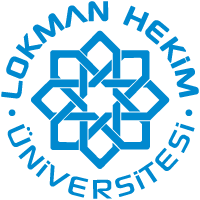Reliability and validity of Turkish version of the Scoliosis Japanese Questionnaire- 27 in patients with adolescent idiopathic scoliosis.

View/
Date
2020-12-08Author
Bazancir, Zilan
Yagci, Gozde
Bek, Nilgun
xmlui.mirage2.itemSummaryView.MetaData
Show full item recordAbstract
Background: The aim of this study was to evaluate the reliability and validity of an adapted Turkish version of the Scoliosis Japanese Questionnaire- 27 (SJ- 27).
Methods: Translation and retranslation of the English version of the SJ- 27 was conducted, and all steps of the cross-cultural adaptation process were performed. The Turkish version of the SJ- 27, the Scoliosis Research Society-22 (SRS- 22) questionnaire and the Short Form-36 (SF- 36) were performed to 139 patients with AIS. Reliability was assessed using the test-retest method (Pearson's correlation coefficient); internal consistency was analyzed using Cronbach's alpha. Validity was assessed by correlating the SJ- 27 with the SRS- 22 questionnaire and SF- 36.
Results: The mean Cobb angles were 23.2 ± 8.3° and 19 ± 5.9° for thoracic and lumbar regions, respectively. The SJ- 27 showed excellent test/retest reliability with an Intraclass correlation coefficient of 0.99. Internal consistency of the SJ- 27 was found to be very good (Cronbach's alpha = 0.991). The SJ- 27 demonstrated very good construct validity with the SRS- 22 total score (r = 0.61). The similar domains of the SJ- 27 and SF- 36 questionnaire was correlated also in the study.
Conclusions: The Turkish version of the SJ- 27 to measure health related quality of life in adolescent idiopathic scoliosis was found to have very good validity, excellent reliability, and high internal consistency.
xmlui.mirage2.itemSummaryView.Collections
The following license files are associated with this item:

DSpace@LokmanHekim by Lokman Hekim University Institutional Repository is licensed under a Creative Commons Attribution-NonCommercial-NoDerivs 4.0 Unported License..













